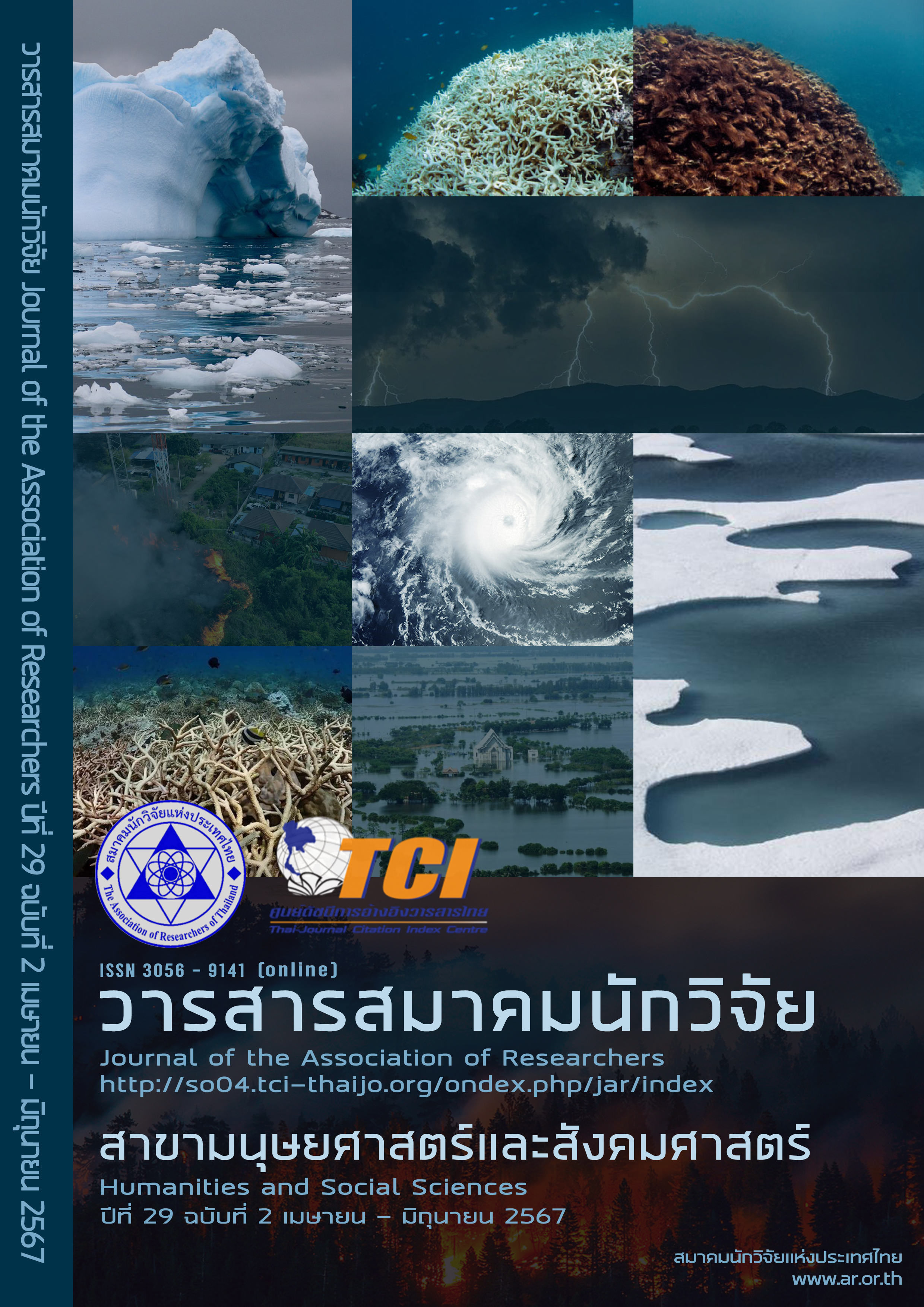Strategic Planning, Roles and New Challenges Of Event Marketing Under Business Transformation In the Digital Era
Main Article Content
Abstract
The objectives of this research were to study strategic planning, the role of event marketing in the digital age, and study new challenges of event marketing under business transformation in the digital age. It was qualitative research using documentary research, in-depth interviews, and focus group discussions. The key informants were 44 public relations professionals in government and private sector organizations with experience in event marketing. It can be concluded that event marketing strategic planning has 8 steps as follows: determining objectives, targeting, timing, budget, design, media and activities, communicating issues, sequencing and evaluating the role of event marketing in the digital age. The findings revealed that event marketing has a vital role to play in the business of organizations such as organizing contests, organizing celebrations, providing patronage or support, organizing business opening days, displaying work and exhibitions, and trade shows. New challenges of event marketing under business transformation in the digital age revealed that organizations should integrate various event marketing and learn how to manage online event marketing, especially, enhancing knowledge about innovations in activity marketing.
Article Details

This work is licensed under a Creative Commons Attribution-NonCommercial-NoDerivatives 4.0 International License.
บทความที่ปรากฏในวารสารนี้ เป็นความรับผิดชอบของผู้เขียน ซึ่งสมาคมนักวิจัยไม่จำเป็นต้องเห็นด้วยเสมอไป การนำเสนอผลงานวิจัยและบทความในวารสารนี้ไปเผยแพร่สามารถกระทำได้ โดยระบุแหล่งอ้างอิงจาก "วารสารสมาคมนักวิจัย"
References
ทัชวรรณ โอภาสขจรเดช. (2559). ปัจจัยที่มีผลกระทบต่อความสำเร็จของการดำเนินงานธุรกิจอีเว้นท์ขนาดกลางและขนาดเล็ก. วารสารศาสตรมหาบัณฑิต สาขาวิชาการจัดการสื่อสารองค์กร, คณะวารสารศาสตร์และสื่อสารมวลชน มหาวิทยาลัยธรรมศาสตร์.
วราภรณ์ ฉัตราติชาต. (2556). กิจกรรมพิเศษเพื่อการสื่อสารแบรนด์ขององค์กรธุรกิจในประเทศไทย. กรุงเทพฯ: มหาวิทยาลัยหอการค้าไทย.
Mair, J., & Weber, K. (2019). Event and festival research: a review and research directions. International Journal of Event and Festival Management, 10(3), 209-216.
Martensen, A., & Gronholdt, L. (2008). How events work: understanding consumer responses to event marketing. Inovative Marketing. 4(4), 44-56.
McKeown, I., & Philip, G. (2003). Business transformation, information technology and competitive strategies: Learning to fly. International Journal of Information Management. 23(1), 3-24.
Morgan, R. E. & Page, K. (2008). Managing business transformation to deliver strategic agility. Strategic Change. 17, 155-168.
Nufer, G. (2015). Creating an image transfer through event marketing: principles, requirements and consequences. European Journal of Business and Social Sciences. 3(12), 1-18.
Sadd, D., & Musikavanhu, R. (2018). A comparison of event impacts: Zimbabwe and the UK. Events Managemen. 22(2), 199-2012.
Shounubi, A. O., & Akintaro, A. A. (2016). Effective Communication on Organizational Performance. The International Journal of Social Sciences and Humanities Invention. 3, 1904-1914.
Venkatraman, N. (1994). It-Enabled Business Transformation - From Automation To Business Scope Redefinition. Sloan Management Review. 35(2), 73-87.
Translated Thai References
Chatratichat. W. (2013). Special activities for brand communication of business organizations
in Thailand. Bangkok: University of the Thai Chamber of Commerce. (In Thai).
Opaskhajorndej., T. (2016). Factors affecting the success of event business operations. Medium
and small size. Master of Journalism Department of Organizational Communication Management, Faculty Journalism and mass communication Thammasat University. (In Thai).


